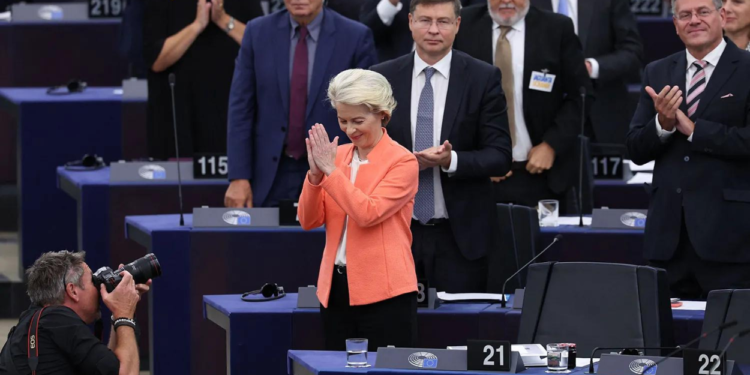Belgium (Brussels Morning) – Eurosceptic Voter Divisions and Pro-EU Strategy for 2024 European Parliament Elections: Insights from ECFR Report
There will be an increase in support for anti-European and far-right parties in the June 2024 European Parliament elections. Still, the pro-European mainstream may do much better than many expect – including with a workable majority in the house – according to a new polling-backed piece published on March 21 by the European Council on Foreign Relations (ECFR).
The report’s writers and foreign policy specialists, Ivan Krastev and Mark Leonard, claim that pro-European parties must bypass “aping” far-right policies, such as migration if this is to materialise.
Among its key conclusions, the study, “A new political map: Getting the European Parliament election right”, indicates that the salience of migration, as a vote driver, is comparatively lower across Europe; the ‘far right’ is not noticed as a unitary phenomenon, with some groups having successfully detoxified themselves while others are noticed as radical and dangerous, even on key topics relating to EU membership; and perceptions of the EU’s reaction to crises such as Covid-19, climate change and Ukraine are largely viewed in a ‘negative’ light, so operating a campaign on the European Commission’s narrative could backfire.
Mentioning new YouGov and Datapraxis survey data, from Austria, France, Germany, Greece, Hungary, Italy, Netherlands, Poland, Portugal, Romania, Spain, and Sweden, the co-authors, Ivan Krastev and Mark Leonard, state that the current method of pro-Europeans of neutralising migration as a political problem by “aping” right-wing policies and supporting the European Commission’s reaction to Covid-19 and Russia’s invasion of Ukraine, is in jeopardy of failing. Instead, European leaders should seek targeted national movements to “wake up” key voter groups to the extent of maintaining a pro-European direction in the next legislature.
Instead of aping the far-right or concentrating on the European Commission’s record, pro-European leaders should think about re-evaluating their procedure for June’s elections. To accomplish this, and rally wider support for the pro-European movement, Krastev and Leonard present a strategy of Polarisation and demobilisation to steal votes away from the far-right.
In 2019, pro-Europeans put the survival of the EU on the voting– but this will be much more difficult in 2024 and could end up helping the Eurosceptics in many countries. To contrast a spike in backing for the far-right, European leaders should seek polarising strategies in places where these groups are perceived as the extreme exterior of their voting base, including Austria, France, Germany, the Netherlands, Poland and Sweden.
This is especially valid in Austria, France, Germany and Poland, where 20% or more notice exiting the EU as a preference agenda for their highest anti-European party. In tandem with efforts to muster their voter base, pro-Europeans should also strive to de-mobilise those associated with anti-European parties. Eurosceptics are doubtful to change political camp, but they could be prevented from turning out on polling day – especially if they don’t subscribe to certain features of a party’s platform or are encountered with narratives that speak to the tensions that anti-establishment parties could offer to their own country and the EU.
Revealing the inconsistencies and threats of the anti-European platform could provoke some supporters to rethink their choice – although, in Germany, France, and Austria, for instance, this could prove challenging given the highly mobilised character of these parties.
Moreover, Making the possibility for a stronger Europe in the world. Placing the Ukraine war front and centre of a political movement is likely to backfire, according to Krastev and Leonard, given the weakening belief in Ukraine’s ability to guarantee victory (just 10% of respondents now maintain the view that Ukraine can succeed in the war, according to ECFR’s dataset).
Supporting the track record of the European Commission and its remarkable policies, including the EU Green Deal, will also yield little usefulness since many Europeans see it as having functioned poorly in the face of numerous Instead, leaders should construct the case for a more powerful and more defensive-minded Europe, which can contrast possible US policy shifts under Donald Trump and further actions of Russian aggression along Europe’s boundaries. This method could “wake up” voter parties wary of Trump’s return to the significance of preserving a pro-European movement in the next parliament.




